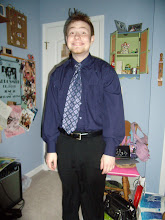It is an interesting observation that, frequently, a philosopher defends his favored theory of material composition by arguing that it is the least-bad of all the theories. Many utilize a
reductio strategy. For example, van Inwagen himself begins his defense by arguing against fusion-type answers to the SCQ. Sider, likewise, defends nihilism by (at least in part) attacking universalism. In mereology, it seems, the best defense is a good offense.
Part of this reality is likely due to the fact that both nihilism and universalism commit oneself to claims that, ordinarily, are completely absurd.
Of course tables and chairs exist, and
of course there is no object that is composed of the tip of my nose and the Eiffel Tower. Because of this, much of the work to be done by a proponent of one of these views is to alleviate the perceived crazy-ness. Thus we see the introduction of the paraphrase strategy, Lewis and Horgan's context-sensitive semantics, etc.
Recall that the dialectic has been driven most centrally by our attempts to seek an answer to van Inwagen's Special Composition Question. Three answers, nihilism, universalism, and compatiblism, were presented. The answers are logically incompatible and, in fact, exhaust the logical possibilities. This is because the three can be summarized as answering in the following manner. When does composition occur? Never, always, sometimes.
Compatiblism is the the juicy steak (or respective soy product) of composition. It looks and taste delicious - and is nine times out of ten what we most want to order on the menu. But is by no means healthy for us. Substantial philosophical work must be done in order to not keel over from the cholesterol-ridden aftereffects of compatiblism. First and foremost, one must answer a follow-up question. Yes, composition only sometimes occurs, but under what circumstances?
Above, it was demonstrated that composition is never based merely on the position of the parts. Other answers have been attempted. Notably, van Inwagen argues that composition occurs only when involving life. But Ned Markosian goes a different way. When pressed to offer a complete answer to the SCQ, containing the circumstances under which composition does and does not occur, Markosian simply refuses to answer. That is, he claims that there is no answer to the SCQ. More formally, he holds that "there is no true, non-trivial, and finitely long answer to SCQ." Thus, facts about composition are brute, that is, they do not obtain in virtue of some other fact or facts.
One might reject Brutal Composition on the grounds that a proper answer to the SCQ must be systematic and general. Further, it should not help itself to mereological terminology - parthood, composite, simple, etc. Such restrictions might be unfair, however. The second insists that mereological terminology stands in some subservient relation (
in virtue of,
explained by) to some non-mereological concept or concepts. That is, mereological terminology is not basic. But why should we think this? Certainly something must be brutal. Why is our theory of composition not a good candidate? I am inclined to think that it is. Given that I hold (N) and (M) to be true, however, I differ substantially from Markosian's Brutal Composition.
There is, however, considerable virtue in a systematic and general answer. What metaphysics hopes to uncover is those principles that most fundamentally govern the world.
Prima facie, such principles are necessary truths and obtain in all possible worlds. The correct answer to the SCQ, insofar as an answer reflects a fundemental principle, should be necessarily true. Any string, finite or otherwise, of brute facts about composition are contingent. This is due to the (presumably) contingent nature of some objects. The keyboard from which I am typing is not a necessary object; in some world it could fail to exist. Thus, any answer containing brute compositional facts re: my keyboard is itself contingent.
Or is it? Nowhere was the extent of a BC answer restricted to the actual world. Perhaps, then, a complete BC answer supplies a complete ontology for all worlds, actual and possible (and impossible?). Such an answer indexes the existence of objects to space, time, and modality. There is still more to be said on behalf of this string of facts, though. How are counterfactuals to be accounted for? Is a BC answer compatible or incompatible with Lewisian modality and the counterpart relation? What of ersatz possible worlds, or other modal theories?


